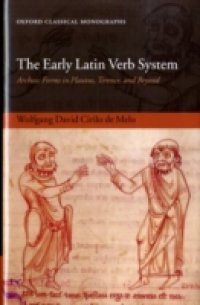This is the first comprehensive treatment of Latin extra-paradigmatic verb forms, that is, verb forms which cannot easily be assigned to any particular tense in the Latin verbal system. In order to see what functions such forms fulfil, one has to compare their usage to that of the regular verb forms. In Part 1, Wolfgang de Melo outlines the usage of regular verb forms, which, surprisingly, has not always been described adequately in the standard grammars. In Part 2,the central part of the book, he compares the usage of the extra-paradigmatic verb forms to that of the regular ones, restricting himself to Archaic Latin (roughly before 100 BC); here he makes many new and unexpected discoveries. In Part 3, de Melo shows how synchronic usage can help us toreconstruct earlier stages of the language which are not attested; he also points out that, while most of the extra-paradigmatic forms die out after 100 BC, some survive - and that such survival is by no means a matter of chance.

